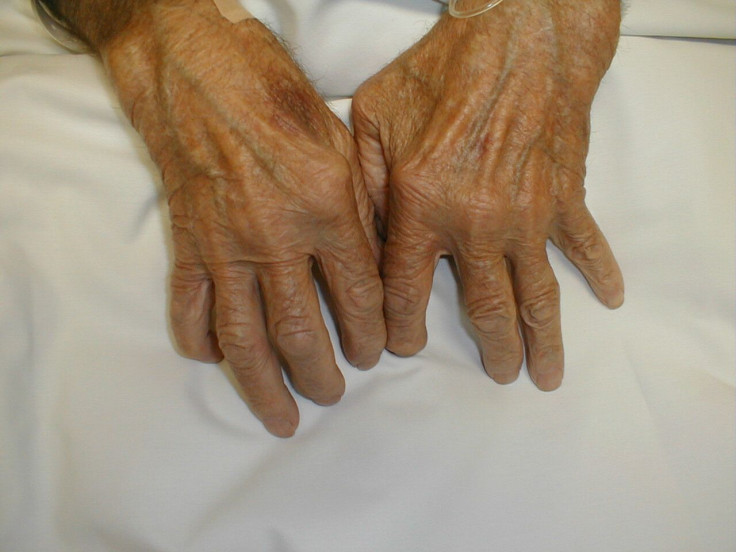Marker For Aggressive Form Of Rheumatoid Arthritis Found

Rheumatoid arthritis is a debilitating disease where the immune system mistakenly attacks the components of joints, breaking them down and causing severe inflammation. Until the advent of recent biological drugs to counter the inflammatory effects of the disease, individuals had to suffer with painful and stiff hands that were disfigured by the disease. Now that treatment options are available, the next step is to uncover the underlying cause of the disease and means for early detection.
In research findings published today in the journal Science Translational Medicine, a group out of Johns Hopkins University has found an antibody that attaches to the disease-promoting enzymes. Unlike typical antibodies that sequester and block their intended target, the antibodies seen in severe cases of the disease actually activate the enzyme. Activation by specific antibodies found in the blood cause the enzyme, called PAD-4 or peptidylarginine deiminase 4, to become more destructive in rheumatoid arthritis. Of the three million people with rheumatoid arthritis, one-third have the most aggressive form of the disease.
The hope is that identifying these antibodies will result in an easy diagnostic test to give patients and doctors a better idea of what treatment is best and when to begin. "Identifying early on a subset of patients with severe rheumatoid arthritis could benefit their health, as these patients could start aggressive drug therapy immediately and find the most effective treatment option," said senior study investigator Dr. Antony Rosen, M.D., director of rheumatology and Mary Betty Stevens Professor at the Johns Hopkins University School of Medicine.
In experiments that took two years to complete, the researchers tested blood samples from patients with rheumatoid arthritis. In 18 percent of 44 samples, the reactive antibodies were found. They were also found in 12 percent of an additional 194 samples. The antibodies that were specific for PAD-4 were only detected in the blood of patients who had the most severe form of the disease, which is difficult to control with anti-inflammatory medications and steroid-based drugs. Those who had the antibody present in their blood also had an increased severity of disease within the past year and had a far higher scoring for deteriorating joint and bone than those without the antibody.
When the researchers tested the action of the antibody on the pro-inflammatory PAD-4 enzyme in laboratory tests, they saw that it increased the enzymes activity by over 500 fold. This was found to occur because the antibody attaches in an area of the enzyme that usually captures calcium, which is required for enzymatic activation, but binds much more strongly.
Researchers concluded that blocking the function of the PAD-4 enzyme may be important in helping to control severe rheumatoid arthritis. "Our results suggest that drugs inhibiting the PAD4 enzyme may have real benefit in patients with severe rheumatoid arthritis and represent an important field of study for investigating new and alternative treatments," said lead study investigator and biologist Dr. Erika Darrah, Ph.D. The research group will continue to determine when the antibody shows up in patients with rheumatoid arthritis, signaling a progression of the disease, and determine why the process is occurring.
Source: Darrah E, Giles J, Ols M, et al. Erosive Rheumatoid Arthritis Is Associated with Antibodies That Activate PAD4 by Increasing Calcium Sensitivity. Science Translational Medicine. 2013



























